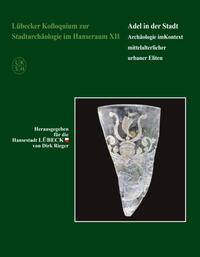
The cultural heritage of Medieval and Early Modern elites in urban Europe is reflected in many different facets. 36 researchers from 13 countries explored this topic at a conference in 2022, on which this volume is based. Two keynote papers [Baeriswyl, Ayers] are followed by contributions on findings from Cork [IRL], Bristol, York [GB], Ghent [B], ‘s-Hertogenbosch, Alkmaar, Amsterdam, Deventer [NL], Berlin/Cölln, Brandenburg a. d. Havel, Brunswick, Bremen, Göttingen, Cologne, Lübeck, Lüneburg, Münster, cities in Münsterland, Soest, Stralsund [D], Gdańsk, Kołobreg, Szczecin [PL], Riga [LV], Tallinn [EST], Visby [S], Aarhus [DK] and Turku [FIN] as well as an epilogue. Issues adressed are the significance of privileges, hydraulic engineering, the rise of a Medieval metropolis, power games and conspiracies, cities without nobility, evidence of aristocracy, secular and ecclesiastical nobility, cesspits, long-distance merchants and ministeriales, lesser nobility and castle inhabitants, aristocratic lifestyle, glass vessels, socio-topographies, textual sources and excavations, evidence of power and memory as well as identities and social differentiation.